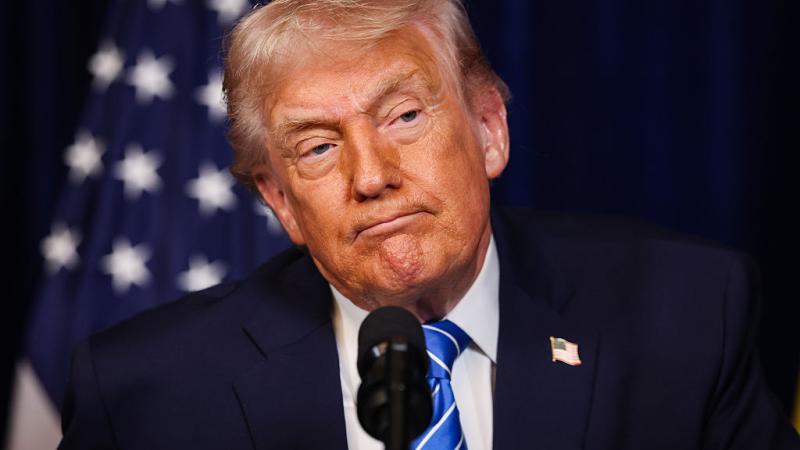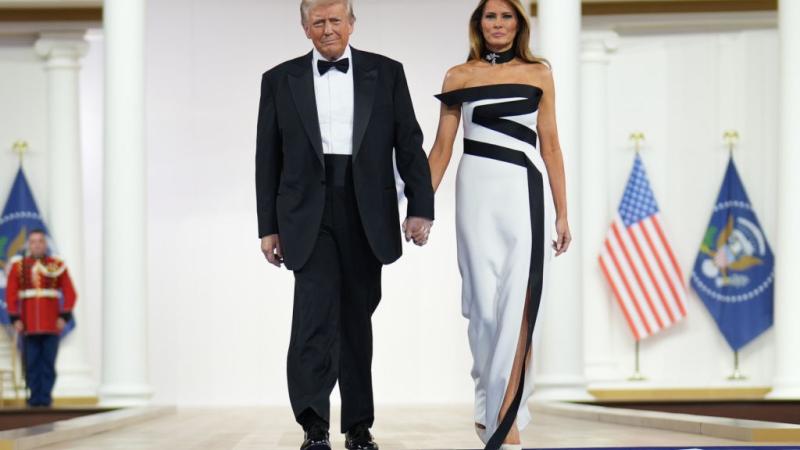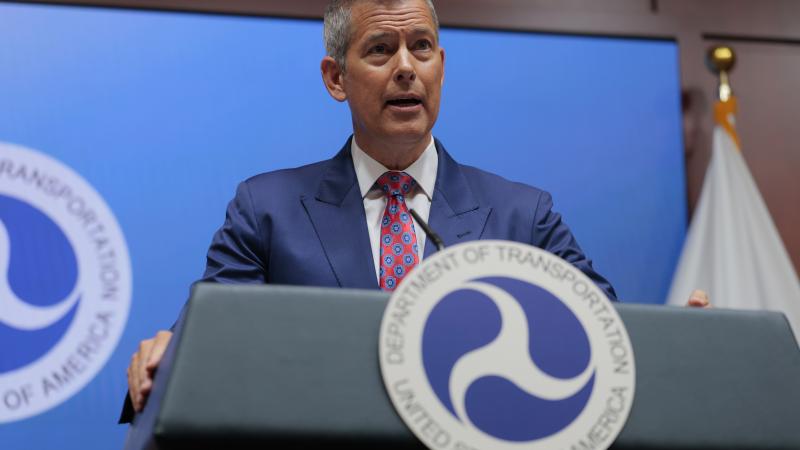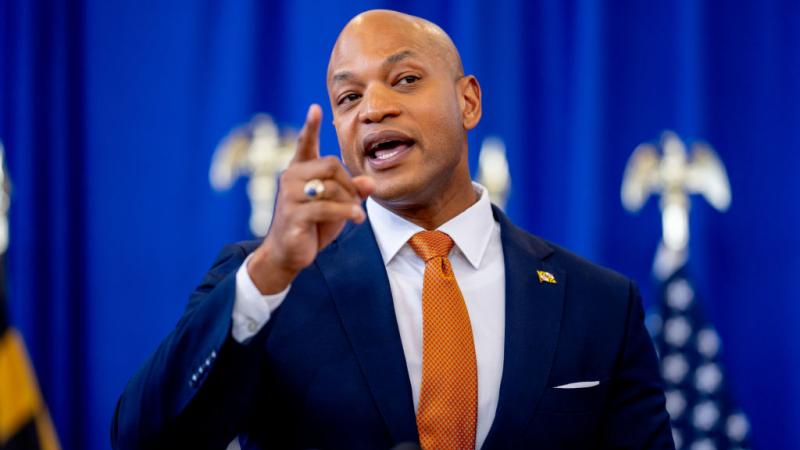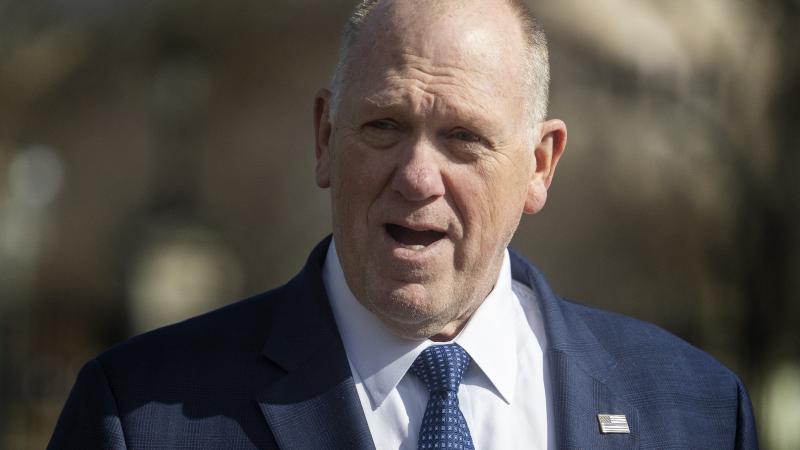Velocity of early Trump action far surpasses the Gipper's, Reagan biographer says
Presidential historian Craig Shirley believes that no matter who is chronicling his time in office, historians will have to say that President Donald Trump is a consequential president.
President Donald Trump has taken Washington by storm at the start of his second term, far surpassing the velocity of another Republican president who prided himself on speedy results, according to Ronald Reagan's biographer.
Trump's first 30 days blow those of Reagan's first and second terms in 1980 and 1984 out of the water "in a nice way, but times have changed," says presidential historian Craig Shirley, who wrote one of the authoritative biographies on the 40th president.
Trump also is outpacing Franklin Delano Roosevelt, a president who set the standard for the first 100 days with his New Deal agenda, he added.
The 47th president is "moving faster and better, but he's handling a different set of issues," Shirley told Just the News. "The border was not an issue for FDR or for Ronald Reagan; the border is the number one issue and polls show it with the American people."
"He's got to deal with inflation that Reagan had to deal with and he's got to deal with economic malaise from the Great Depression that FDR had to deal with," he added.
Former Deputy National Security Adviser Victoria Coates agreed.
"I think we all have the sense that we're experiencing the second Trump term in dog years. He seems to be pretty determined to pack seven years of stuff in every year," she quipped in an interview on the John Solomon Reports podcast on Tuesday.
Coates noted that foreign policy achievements often take presidents some time to assemble but that Trump has begun his second term with an unexpected flurry: a ceasefire in the Israel-Hamas war, a thawing of icy Russia relations and a pathway to a Ukraine peace deal to name a few.
"He's got NATO suddenly pledging to get to 3.5% within three weeks of inauguration. He's got the Russia-Ukraine talks started, he has completely changed the conversation on Israel and Gaza and Hamas. He's the only person who's put a plan on the table for that," she noted
Coates said Trump's quick progress on Russia -- Secretary of State Marco Rubio announced formal negotiating teams for a peace deal -- stands in stark contrast to France's Emmanuel Macron who spent three years negotiating but yielded no measurable progress.
Shirly said Trump's blazing speeds can be attributed to three dynamics: 1) the dire situation the country and the world faces demanded immediate action; 2) the force of Trump's personality; and 3) the accessibility of television, internet, podcasts, emails...coupled with the hyper speed with which information now travels.
The concept of the "first 100 days" agenda began under FDR when he instituted the New Deal to tackle a crushing economy. Pushing 15 major bills through Congress, he addressed the most pressing issues of banking, manufacturing, agriculture and social welfare.
By his 100th day in office, Roosevelt had signed 99 executive orders in his first three months.
Reagan, who delivered his own version of FDR's fireside chats every Saturday on radio, was trying to heal an economy left behind by one-term president Jimmy Carter. In his first 100 days in office, Reagan signed 18.
Not yet even a month into this term, Trump has signed 68.
In this wide-ranging Presidents’ Day interview on the Furthermore with Amanda Head podcast, Shirley also discussed the media’s coverage of the Trump White House and the president’s distrust of so-called “fake news."
Shirley compared that with the Founding Fathers, who also were distrusting and soured on the media of their day.
“In the 1770’s the framers and the founders hated the pamphleteers and the newspapers of the era. They despised them,” Shirley noted,
However, the founders saw value in the media’s alliance with and representation of the American people against government. That dynamic, he said, has recently changed.
“Only recently have we seen the government, the press, ally with the government against the people," he noted. "They no longer are an ally of the American people. They're an ally of government. And of course, you have two power centers: the press and the government allied against the American people.”
He predicts that the result of this phenomenon nearly 250 years after our founding is that traditional media will be eliminated and new media will move in on their market share.
“Because of that, a void has been created, and so you've seen the growth of alternative media…what I’m telling you is that we will see in the next four or five years, the collapse of the Washington Post, the collapse of CNN, the collapse of maybe another network,” Shirley warned.
Traditional news media has had a tough time coping with Trump’s barrage of actions from the Oval Office and are worried there’s no one to stop him.
On the Politics War Room podcast, veteran democrat consultant James Carville mocked liberal talking heads who after their election loss in November, expressed optimism that there would be road blocks along the way.
Carville teared into them saying, “they didn't come, they're not there, OK? Let's just get over it. They're not coming. The cavalry is not coming, the courts are not coming, nothing.”
It’s not just the media that has lost its way.
According to Shirley, historians no longer adhere to the core values of chronicling events honestly through a neutral prism.
“You know that there are liberal historians. Some of them used to be friends of mine, but they really turned south over the first election of Donald Trump, and they really, let's face it, they lost their minds," he said.
"There's no talking to them. So the conservative historians, the common sense historians, are few and far between, but they [liberals] still control a lot of the institutions of universities and presidential libraries, things like that. So conservative historians are kind of shut out," he added.
Ultimately, regardless of the political slant of the historian, they will all agree that he was a change-maker, according to Shirley.
“I think history has to say Donald Trump was a consequential president.," he said Even the liberal historians have to be say that, whether or not they'll say he was good president is another thing. Now I'm going to say he was good president because he challenged the establishment, because he challenged the existing order, because he challenged the intelligentsia.”
The Facts Inside Our Reporter's Notebook
- through a large part of his promised priorities
- quickly assembling his Cabinet
- James Carville mocked liberal
- Harry Entin expressed incredulity


